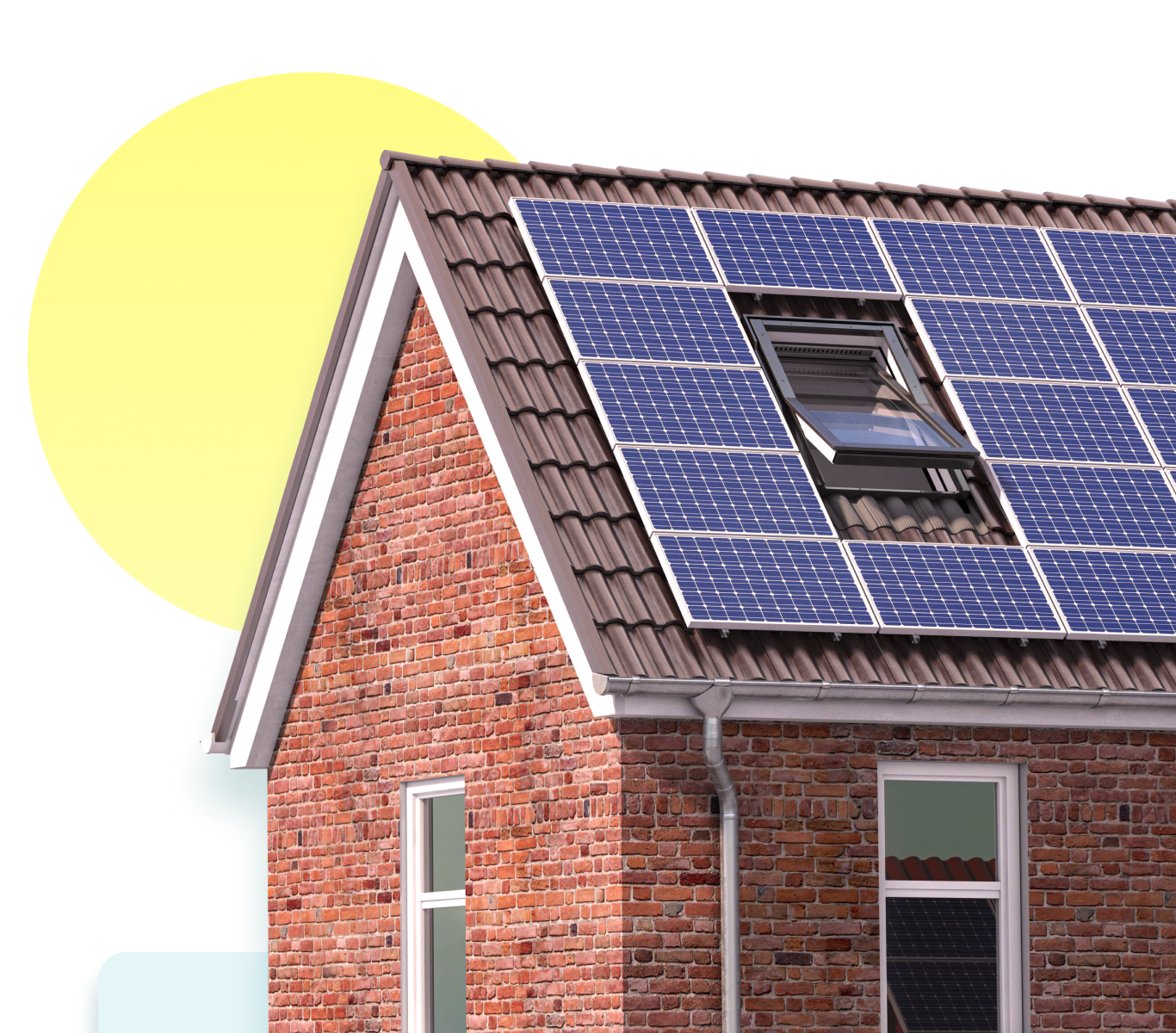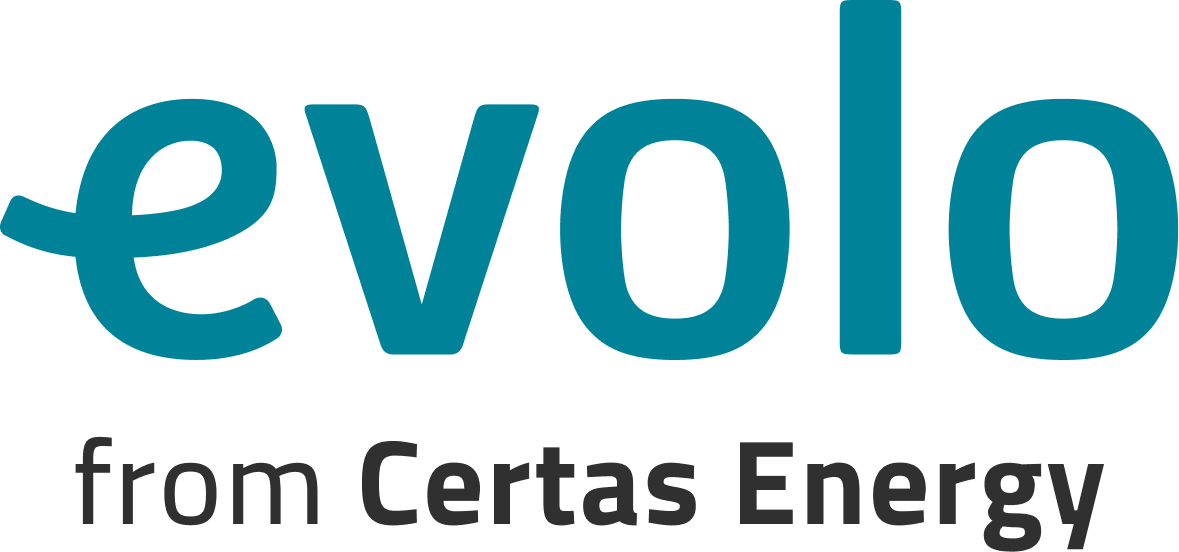
SAVE WITH SOLAR
Considering solar panels for your home?
With Evolo, you’ve come to the right place.
Reduce energy bills, earn from the grid, and generate your own energy with our solar solutions.
We make going solar straightforward and rewarding.
SOLAR PANELS FROM A BRAND YOU CAN TRUST
Your first step towards a low-carbon home
Save on your energy bills and reduce your home's carbon footprint by harnessing the free power of the sun. It might sound like a big step, but with Evolo by your side, it doesn't have to be.
Cut your electricity bills
Protect yourself from increasing costs by generating your own energy, reducing your reliance on the national grid.
Minimal disruption
Solar panels can be installed with minimal disruption to your home. With start to finish service from Evolo, you can trust our knowledgeable, highly skilled network of installers.
Earn back from the grid
When you make more electricity than you use or store, the extra is exported to the grid and you can get paid for the renewable electricity through the Smart Export Guarantee (SEG).
Payback quicker than you think
Between savings on your own bills and earning back from the grid, you’ll start to see the benefits of solar panels soon after installation and enjoy them for many years.
Power your home with solar energy
Installing solar panels can protect against increasing energy costs, reduce your reliance on fossil fuels and enable you to become more independent from the National Grid.
Sunlight is free, once the initial installation is paid, electricity costs will reduce, and you can sell the energy you don’t use back to the grid.
Are solar panels right for me?
Whether you’re eager to shrink your energy bills, earn by selling back to the grid, boost your home’s EPC rating, or champion a renewable lifestyle by reducing your carbon footprint, the right solar solution can make all the difference.
Our dedicated team will help you understand whether solar panels are right for you and your home and which packages will work best for you.
HOW IT WORKS
How do solar panels work?
Solar panels work by converting sunlight into electrical energy that can be used in a home.
-
1
How do solar panels work?
The panels are made up of small units called photovoltaic cells which are made of a semiconductor material, usually silicon. When sunlight hits these cells, it causes electrons in the material to move, creating a flow of electricity.
-
2
Energy is converted
This electricity is then sent to an inverter which converts the DC power generated by the solar panels into AC power that can be used by the home.
-
3
Send excess energy back to the grid
If your home doesn't use all of the electricity generated by the solar panels, it can be fed back into the grid.
-
4
How much energy do panels generate?
The amount of electricity generated by solar panels can vary depending on factors such as the location, orientation and angle of the panels, as well as the amount of sunlight available.
We are installing across the UK
Fill out your details and one of our experts will get back to you within 2 working days to discuss your quote.
Currently installing in:
- Wales
- North West
- Midlands
- Cheshire
LEARN MORE
Frequently asked questions
-
The cost of installing solar panels in the UK can vary depending on a number of factors, such as the size of the system, the type of panels, and the complexity of the installation. As of 2021, the average cost of a solar panel system in the UK is around £6,000 to £8,000 for a typical residential installation. However, the total cost can range from £4,000 to £14,000 or more, depending on the specific circumstances.
It's important to get a quote from a reputable solar panel installation company to get an accurate estimate for your individual needs. Additionally, you may be able to access government incentives or financing options available to help offset the cost of installation
-
The expected return on investment (ROI) for solar panel installation can vary depending on several factors such as the cost of electricity, the size of the solar panel system, the geographic location, and the incentives available.
In general, solar panel installation can provide significant long-term financial benefits for homeowners and businesses. According to a report by the National Renewable Energy Laboratory, the average ROI for residential solar panel systems ranges from 5% to 10%, with payback periods typically between 5 and 15 years.
However, the ROI can be even higher in areas with high electricity costs or with strong solar incentives such as tax credits, rebates, or net metering policies. In some cases, homeowners can even generate a surplus of electricity and receive credits or payments from their utility company for excess energy production.
It's important to note that ROI estimates can vary depending on many factors, and it's recommended to consult with a professional installer to determine the specific ROI for your situation.
-
The size of the solar panel system you need for your home depends on several factors, such as your energy consumption, the size of your home, your location, and your budget.
Some general guidelines that can help you estimate the size of the system:
Determine your energy consumption: Look at your energy bills from the past year and calculate your average monthly usage in kilowatt-hours (kWh). This will give you an idea of how much energy you need to generate with your solar panel system.
Consider your location: Where you live affects the amount of sunlight your solar panels will receive, which in turn affects the amount of energy they can generate. The amount of sunlight your area receives can be determined using solar irradiance maps.
Calculate the size of the system: Based on your energy consumption and location, you can use an online solar calculator to estimate the size of the system you need. Try the energy Savings Trust here.
The calculator will take into account factors such as the efficiency of the solar panels, the angle and orientation of the roof, and the average amount of sunlight your location receives.
Consider your budget: The size of the system you need will also depend on your budget. Larger systems are more expensive, but they will generate more energy and provide a greater return on investment over time.
An Evolo advisor can help you determine the size of the system you need and provide you with a quote for installation and maintenance.
-
Modern solar panels work reasonably well in cloudy weather, even though the light on cloudy days isn't as strong.
-
The lifespan of solar panels in the UK typically ranges from 25 to 30 years. However, this can vary depending on factors such as the quality of the solar panels, the type of technology used, and the level of maintenance they receive.
It's important to note that although the efficiency of solar panels may decrease over time, they will continue to generate electricity as long as they are in good condition. Regular cleaning and maintenance can help extend the lifespan of solar panels, and most manufacturers provide warranties for their products that can last for up to 25 years.
-
In most cases, solar panels alone will not provide power during a power outage. This is because most solar panel systems are grid-tied, which means that they are connected to the electricity grid and rely on it to function. During a power outage, the grid goes down, and the solar panels will automatically shut off to prevent any electricity from flowing back into the grid, which could be dangerous for utility workers trying to repair the lines.
However, if you have a battery backup system installed along with your solar panels, you may still be able to generate and store electricity during a power outage. A battery backup system stores excess electricity generated by your solar panels during the day and can provide power to your home during an outage. This can be a good option for those who live in areas prone to power outages or who want to have a backup power source in case of emergencies.
-
Yes, solar panels can increase the value of your home. Several studies have shown that homes with solar panels tend to sell for more than homes without them. In general, the value added by solar panels depends on a variety of factors, such as the size and quality of the system, the location of the home, and the energy costs in the area.
Additionally, solar panels can make your home more attractive to potential buyers, as they offer a unique selling point that can set your home apart from others on the market. They also provide a clear benefit in terms of reducing energy costs, which can be a major selling point for eco-conscious buyers.
Overall, investing in solar panels can not only help you save money on energy costs while you live in your home but also increase its resale value when you decide to sell.
-
Solar panels generally require very little maintenance. However, some basic maintenance is recommended to ensure that they continue to operate efficiently and produce maximum power over their lifespan. Here are some of the key maintenance tasks for solar panels:
Cleaning: Solar panels should be cleaned regularly to remove any dirt, debris, or bird droppings that may accumulate on the surface. This can be done with a soft brush and mild soap, or a specialized solar panel cleaning solution.
Inspecting: Solar panels should be inspected regularly to ensure that they are free of any cracks or damage that could affect their performance. A professional inspection is recommended to ensure that the panels are operating at peak efficiency.
Monitoring: It is important to monitor the performance of your solar panels to ensure that they are generating the expected amount of power. This can be done using a monitoring system that tracks the energy output of the panels over time.
Shading: It is important to keep the area around your solar panels free of any shading that could reduce their performance. This may involve trimming trees or shrubs or removing any other objects that may block the sunlight.
By following these maintenance tasks, you can help ensure that your solar panels continue to operate efficiently and produce maximum power over their lifespan. Most solar panel manufacturers provide warranties for their products, so be sure to check the terms of your warranty and follow any recommended maintenance tasks to ensure that your warranty remains valid.
-
Many utilities offer a way to sell solar power back to the grid called net metering. If you have solar panels generating electricity at your home, you may generate extra electricity during peak daylight hours. With net metering, any excess power that you generate is sold back to the utility grid.





